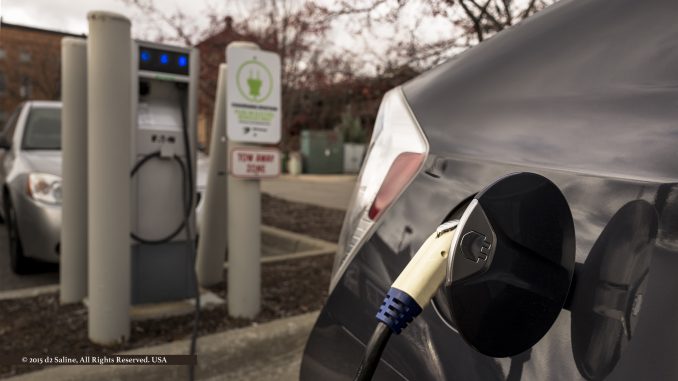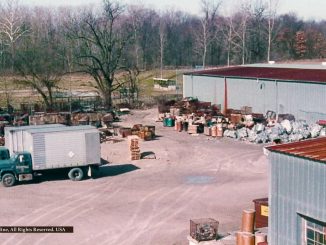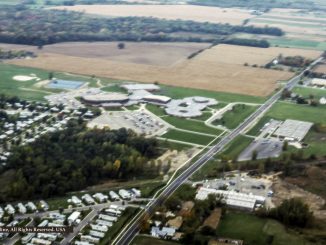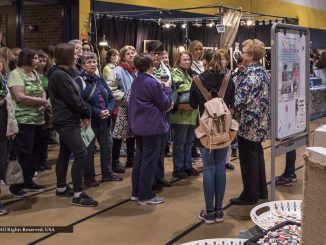
Becoming a smart city will require more than adjusting attitudes to accept sharing roads with electric cars. More than having stations to charge them. More than the next major leap of moving to a lifestyle where vehicles have no drivers at all. More than motivation and connection. [1,2,3]
It will take all of the above — plus infrastructure.
Amazingly, initiatives here are being led by two names that have been familiar for decades. One is DTE Energy. The other is our own Michigan Department of Transportation, more commonly known as MDOT. [4,5]
During a formal presentation at the Smart Cities conference hosted by Washtenaw Community College (WCC), DTE Energy Vice President for Corporate Strategy Camilo Serna set out the big picture. Smart city implementation will require access to and reliable management of increasing amounts of data. An immediate driver of this is the need to more efficiently respond, in real-time, to dynamic electrical demand distributions. [6]
Though not without controversy, smart meter installations have been an early step toward this. Mr Serna also said that many municipalities are already collecting valuable data though mechanisms such as traffic intersection cameras — but currently it is difficult to aggregate input from these systems due to the number of differing technologies being used. [7]
He then detailed the importance of investment in energy storage systems, that “get us into the ‘overnight market.’ Current energy deliver systems have not been doing this. Right now, when you make it, it’s consumed.” Use of batteries will make the infrastructure more reliable, less succeptible to interruption (outages).
“The emerging electric car market is driving storage costs down.”
He argued that access to-called “big data” will help DTE Energy identify and prioritize the placement of swift-charge stations for electric vehicles.
MDOT Transportation Director Kirk Steudle then drilled down on this for the WCC Smart Cities attendees. He began by speaking to the Arizona Uber accident directly and credited forward-thinking legislation in Michigan as having kept this state from making many of the reactionary moves seen elsewhere in the country. [8,9,10,11,12]
“Our purpose is to put side rails on what’s expected,” he explained, “then get out of the way. When you’re ready, deploy — but you’re responsible.”
It’s important to understand that smart cities involve more than just autonomous vehicles and that none of these consistituent parts in such municipalities will operate in isolation. Indeed, smart cities will be so dependent upon interconnection and integration that the very use of the word “autonomous” might reasonably be questioned.
Mr Steudle alluded to this when he discussed Michigan Council on Future Mobility membership, which includes disability advocates, insurance concerns, and law enforcement. Disparate as this is, the group is moving quickly. Very quickly indeed. [13]
It may well be that all necessary infrastructure will be in place and functioning before societal questions related to such things as privacy are even asked, let alone answered. [14]
References
- “It’s Important to Understand What Being a “Smart City” Means to Saline, Part 1” Dell Deaton (April 12, 2018) Saline Journal.
- “It’s Important to Understand What Being a “Smart City” Means to Saline, Part 2” Dell Deaton (April 16, 2018) Saline Journal.
- “It’s Important to Understand What Being a ‘Smart City’ Means to Saline, Part 4” Dell Deaton (April 27, 2018) Saline Journal.
- DTE Energy (home page).
- MDOT: Michigan Department of Transportation (home page).
- “Smart Cities: A Connected Way Forward” (April 6, 2018) Washtenaw Community College.
- Michigan Stop Smart Meters (home page).
- “Arizona Uber Incident Will Affect Local Autonomous Vehicle Industry” Dell Deaton (March 21, 2018) Saline Journal.
- “Enrolled Senate Bill No 995” (December 9, 2016) Michigan Legislature.
- “Senate Bill 0996 (2016)” (December 9, 2016) Michigan Legislature.
- “Senate Bill No 997” (May 25, 2016) Michigan Legislature.
- “Senate Bill 0998 (2016)” (March 9, 2017) Michigan Legislature.
- “Annual Report 2018” (February 16, 2018) Michigan Council on Future Mobility.
- “6 surprising ways driverless cars will change our world” Kate Baggaley (April 18, 2018) NBC News: Mach.
Hashtag
#wccsmartcities



